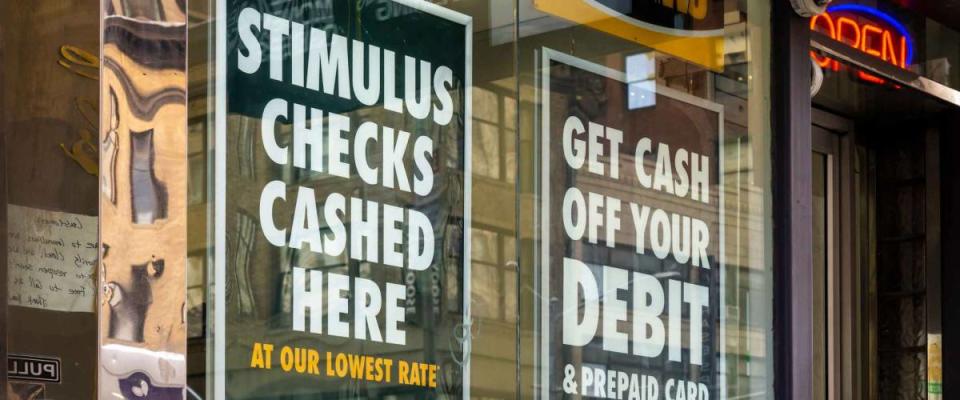America's most popular mortgage is still a deal, at under 2.75%

Mortgage rates are in a holding pattern not far from their recent record low, a popular weekly survey shows. But that next stimulus check you're looking forward to could have a downside if you're considering buying a home or refinancing your mortgage.
Legislation that would give you up to another $1,400 is on a fast track in Washington — and if the bill passes it could help lift mortgage rates out of their comfortable cellar.
In the meantime, homebuyers still can land a cheap loan on a new home, and homeowners still have opportunities to refinance and slash their monthly mortgage payments.
Here's more on the potential connection between the new stimulus checks and mortgage rates, plus a closer look at what rates are doing right now.
Low rates are hanging on, for now

For the third week in a row, rates on the benchmark 30-year fixed-rate mortgage last week were averaging 2.73%, just a few notches above January's all-time low of 2.65%, according to the long-running weekly survey from mortgage giant Freddie Mac.
Rates are way below where they were last year at this time, when the average was 3.47%, Freddie Mac said on Thursday.
For other popular types of mortgages, rates were little changed last week, the survey shows.
The average for a 15-year fixed-rate home loan inched down to 2.19%, from 2.21%. Those mortgages, a popular option for refinancing, were averaging 2.97% at this time last year.
Starter rates on 5/1 adjustable-rate mortgages, or ARMs, were at an average 2.79%, up a smidge from the previous week's 2.78%. One year ago, they were averaging 3.28%.
Those loans have rates that fixed for the first five years and then can "adjust" — up or down — each (one) year.
The link between mortgage rates and stimulus checks

Mortgage rates have been standing still because lenders appear to be waiting for more clues on how the economy will move forward. They want to see what happens with the next stimulus checks and the rest of President Joe Biden's COVID relief plan, says Matthew Speakman, an economist with Zillow.
"In the near-term, that path forward will depend largely on the fate of the next wave of fiscal relief and COVID-19 vaccine developments," Speakman says.
Biden's pandemic package appears to be moving through Congress quickly. Once new stimulus checks start going out, Americans could feel more upbeat about their finances and the overall economy — and that optimism has the power to lift mortgage rates.
Here's why: The rates on home loans tend to track the interest rates on Treasury bonds. Those bond yields already have been hitting their highest levels in over a year as Biden's plan and the vaccine breakthroughs are making investors feel more confident.
They've been pulling their money out of Treasuries, which are seen as pretty safe investments, and have been pouring it into stocks, which are riskier. The drop in demand for Treasury bonds has pushed their prices down, and has raised their yields.
"The run-up in Treasury rates has not impacted mortgage rates yet, which have held firm," notes Freddie Mac chief economist Sam Khater. But mortgage rates could catch up before long.
Get a low rate before they're gone

So, borrowers should grab ultra-low mortgage rates while they can.
That may be easier for homeowners than homebuyers, who are encountering short supplies of houses for sale and rising prices for properties.
But owners who haven't refinanced yet have few good excuses. Research posted this month by the mortgage technology and data provider Black Knight showed that 16.7 million homeowners are good candidates to refi and could save an average $303 a month.
You're considered in a good spot to refinance if you could chop down your interest rate by at least three-quarters of a point (say, from 3.50% to 2.75%), have a solid credit score, and have at least 20% equity in your home.
Because mortgage rates can vary from one lender to the next, you've got to shop around for your refi loan. Gather and compare offers from at least five lenders; a Freddie Mac study found borrowers who get at least five offers save an average of $3,000 versus those who go with the very first rate they see.
You'll want to draw on your comparison shopping skills all over again when it’s time to buy or renew your homeowners insurance. Review rates from multiple insurers, and you may find the coverage you need at a much lower price.

 Yahoo Finance
Yahoo Finance 